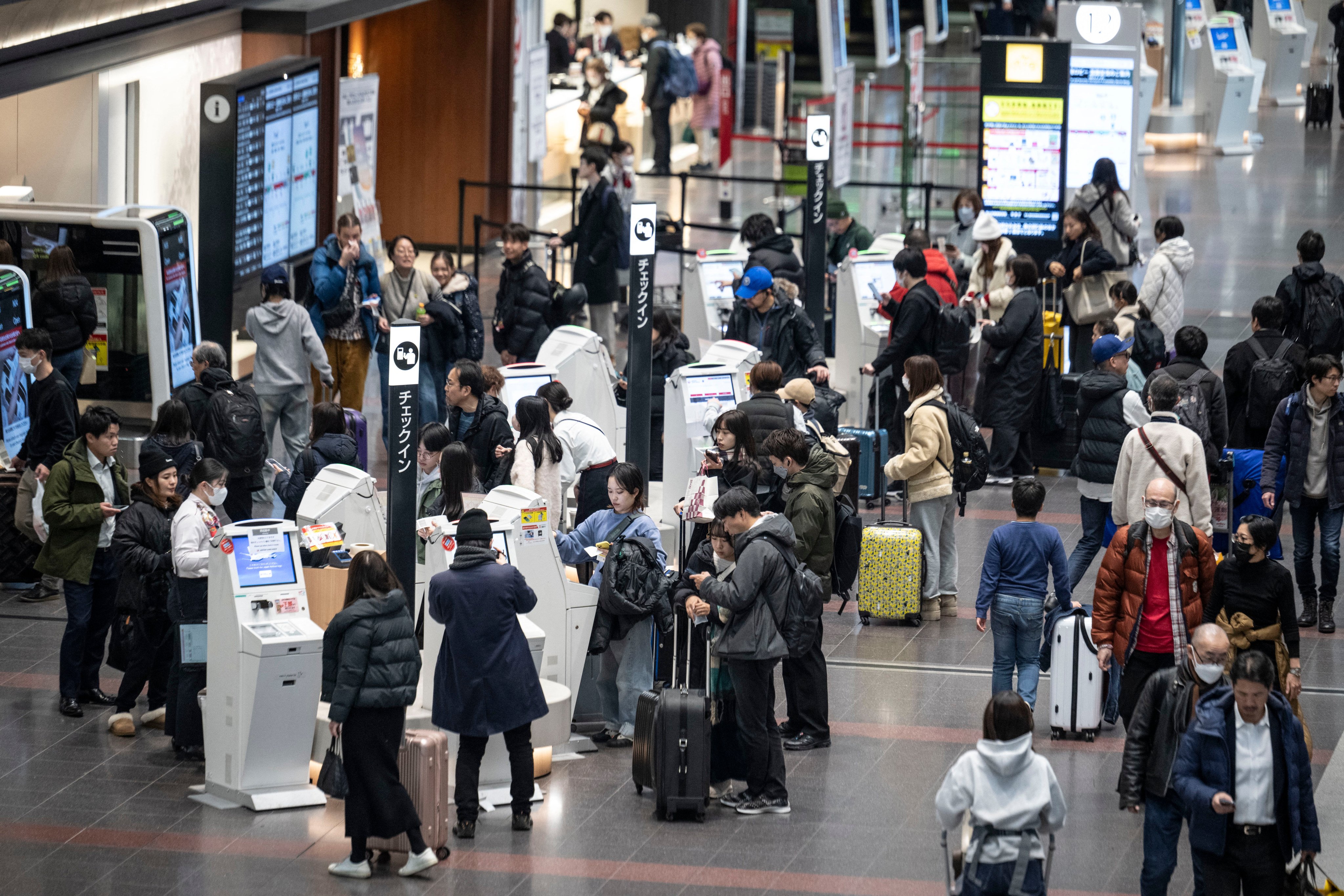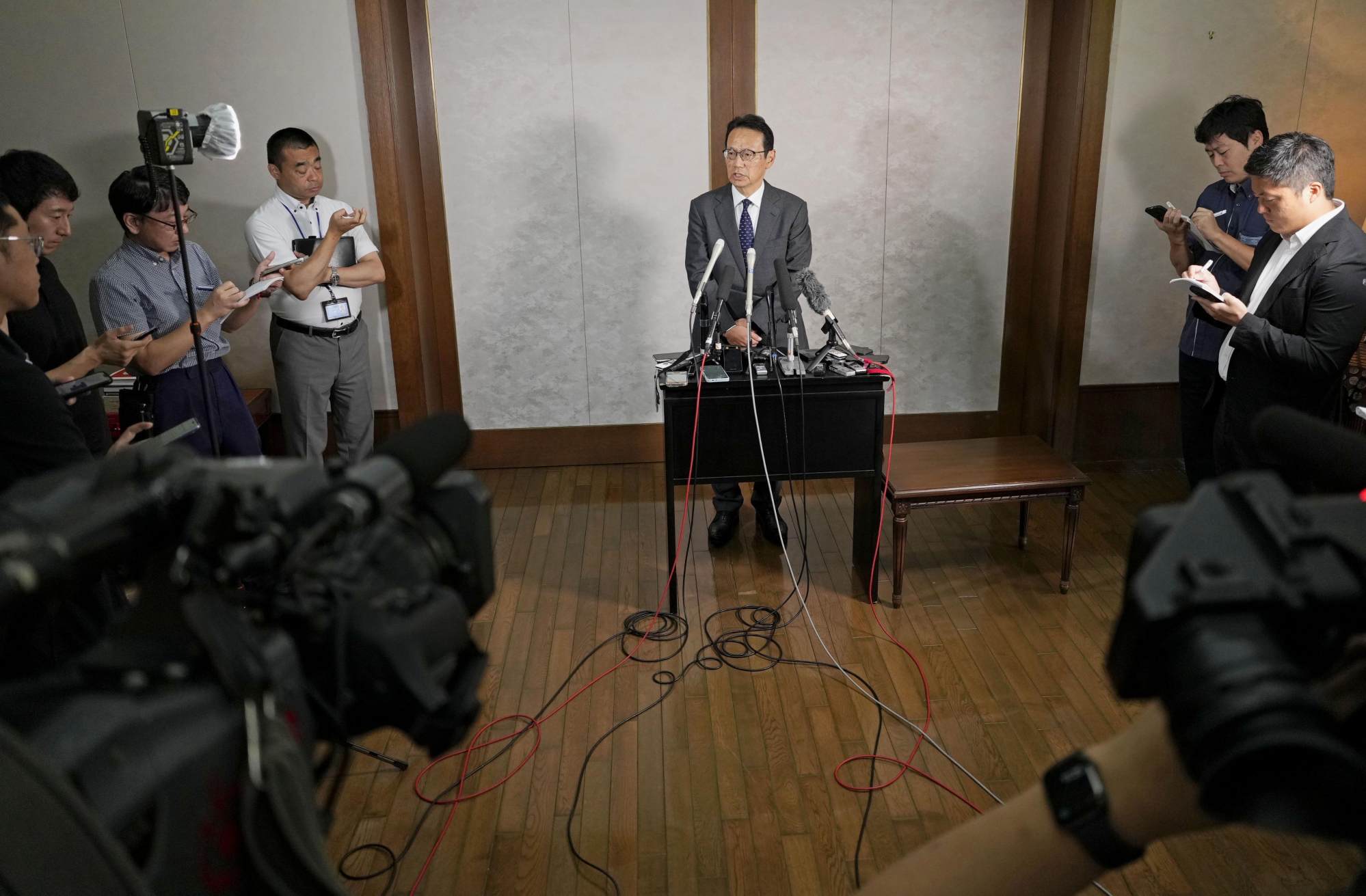Is China a no-go zone for Japanese travellers? Espionage arrests raise concerns
Five out of the 17 Japanese nationals recently arrested on suspicion of spying or other crimes since 2015 are still in Chinese prisons

The arrest and prosecution of Japanese citizens in China is fuelling public anxiety and deterring travel, Japan’s government has warned, as academics and businesspeople said they were either taking precautions or avoiding visits altogether.
Tokyo expressed its concern about deteriorating relations on Wednesday after a court in Beijing sentenced a Japanese employee of pharmaceuticals manufacturer Astellas Pharma to three years and six months in prison for espionage.
The man, who has not been named but is reported to be in his sixties, was initially detained in March 2023 as he prepared to leave China after working in the country. He was indicted last August, and the first hearing in his case took place three months later.
The sentencing hearing on Wednesday was not open to the press, but officials from the Japanese embassy in Beijing were permitted to attend, Jiji Press reported.
“It is extremely regrettable that a guilty ruling was issued,” Japanese ambassador to China Kenji Kanasugi told reporters after the hearing. “We will continue to call strongly for his early release while supporting him as much as we can.”

Speaking later in the day in Tokyo, a foreign ministry spokesman said the arrest of Japanese nationals “has become one of the major obstructive factors for people-to-people exchanges … and improvements in public sentiment”, as quoted on Jiji Press.
The official called on China to “enhance the transparency” of its judicial procedures, given that the hearings in the case have been held behind closed doors and little evidence has been made available.
According to the foreign ministry, 17 Japanese nationals have been arrested in China on suspicion of spying or other crimes since 2015. Five remain in prison.
Beijing introduced strict anti-espionage legislation in 2014 and called on the public to report threats to national security. The law has been criticised for being vaguely worded and open to broad interpretation, including on what poses a threat to national security.
“There is no way at all that I would go to China, on business or for a vacation,” said Ken Kato, a Tokyo-based businessman who is also a director of Human Rights in Asia and an outspoken critic of arbitrary detention by governments in the region.
“I have been quoted many times about my human rights work and I think it would be very likely that I would be arrested if I tried to enter China,” he told This Week in Asia.
“I think that a lot of Japanese see this sort of news and they are also reluctant to go to a country where they are going to be asked a lot of questions and potentially locked up for years.”
Statistics on Japanese living in China bear that out. There were more than 140,000 Japanese living in China in 2018. Last year, according to the Nikkei newspaper, that had fallen to 97,538.
Unhandled type: inline-plus-widget {“type”:”inline-plus-widget”}
Japanese businessmen dispatched to China to work in local branch offices are reportedly requesting alternative postings, in large part due to attacks on family members in recent years.
Assaults on Japanese
Last June, a Chinese man assaulted a Japanese mother and her child as they were waiting at a school bus stop in Suzhou, with a Chinese woman later dying of injuries she sustained trying to protect the child. In September, a 10-year-old boy died after being stabbed close to his school in Shenzhen.
“Japanese families do not want to take that risk any more, with the possibility of being arrested on vague espionage charges just making it even less appealing,” Kato said.
Maya Hamada, a professor of Chinese literature at Kobe University, visited China to attend an academic conference in Fuzhou in late April, and admitted that she took precautions before leaving Japan.

“I have visited China dozens of times and I would not say that I am nervous about visiting, but I do take care with what I say and what I do while I am there. I also used a short-stay tourist visa this time, which I think is safer than entering the country on a working visa,” she said.
“I also feel safe because I study Chinese literature and that is not controversial, but colleagues who are professors of politics, economics or international relations, for example, have to be more careful.”
There have been a number of cases of Chinese academics at Japanese universities detained after returning for a brief visit to their homeland.
One of the most prominent to disappear was Yuan Keqin, a professor at Hokkaido University of Education, who was detained in 2019 and subsequently charged with espionage. In May last year, he was sentenced to six years in prison by a court in Jilin province.
“This is a bad policy because it does nothing but damage relations between China and Japan and probably hurts China more,” said Kato. “Businesspeople do not want to go there; professors no longer feel safe and do not feel they can work with Chinese academics; and no Japanese person wants to book a holiday there because they fear they might be arrested.
“Perhaps it is about time Japan passed some similar espionage legislation and started arresting Chinese so we can arrange hostage exchanges.”